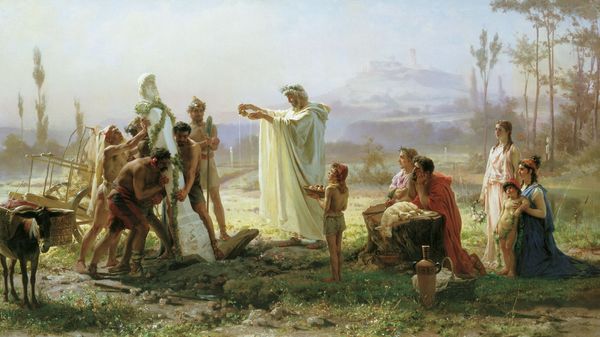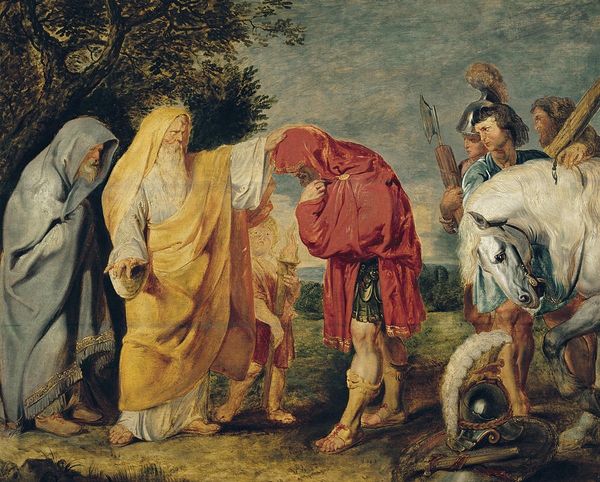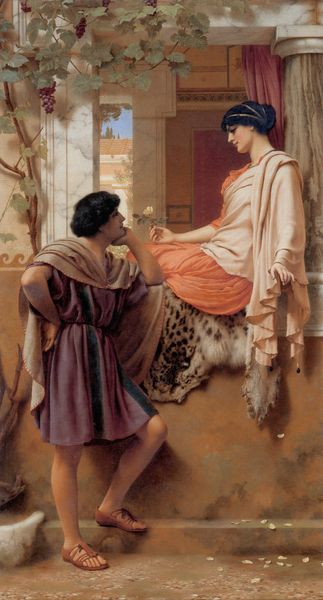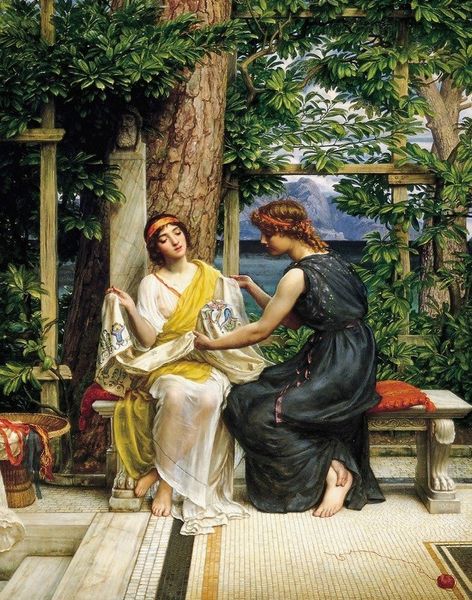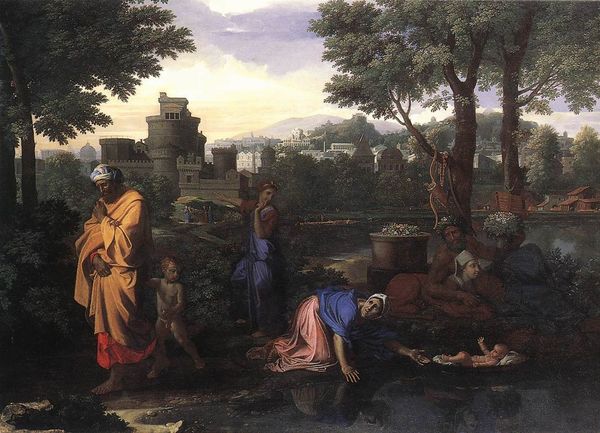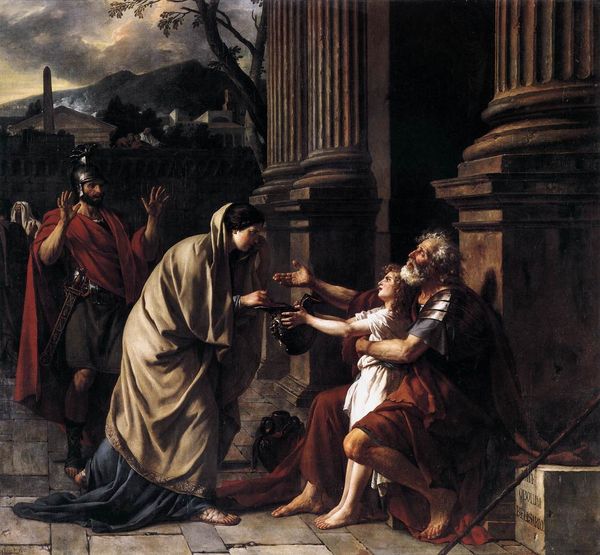
painting, oil-paint
#
narrative-art
#
painting
#
oil-paint
#
landscape
#
romanticism
#
genre-painting
#
history-painting
#
realism
Copyright: Public Domain: Artvee
Editor: Here we have "Woman at the Well" by Carl Bloch, a narrative scene rendered in oil paint. I'm struck by the way the light catches the woman's simple dress and the textures of the stone well. It feels staged, but beautifully crafted. What's your take on it? Curator: Well, let’s think about what it means to represent this Biblical scene through oil paint. Bloch's meticulous brushwork and the rich colors, are these merely aesthetic choices, or do they point to a specific cultural consumption? He's producing a luxury good for a specific audience. Notice how the rough labor involved in fetching water is softened, romanticized. Does this distance the viewer from the lived realities of the time? Editor: I see what you mean. It’s less about the actual labor and more about presenting an idealized version, perhaps. But how does the choice of materials, specifically oil paint, influence that interpretation? Curator: Oil paint, historically, allowed for greater detail and realism, highly valued commodities in the art market. It's a move away from the fresco techniques or other less ‘durable’ mediums, implying permanence and value. We must ask ourselves, what is the role of this "realism" in shaping the viewer's perception and ultimately, the narrative's reception? What kind of labor and social structure is being concealed by the perfect strokes of paint here? Editor: So, it's not just the scene itself, but the very material of the painting and its historical context that shapes our understanding of the narrative and also potentially hides other narratives? Curator: Exactly. Considering the painting through its materiality invites us to think critically about the production and consumption of art and its potential role in reinforcing social structures. Editor: That's a perspective I hadn't considered before, seeing how the materiality contributes to a painting’s message. Thanks! Curator: Likewise, I've benefited from the reminder to continually scrutinize what assumptions I bring to even a "historical" reading.
Comments
No comments
Be the first to comment and join the conversation on the ultimate creative platform.


